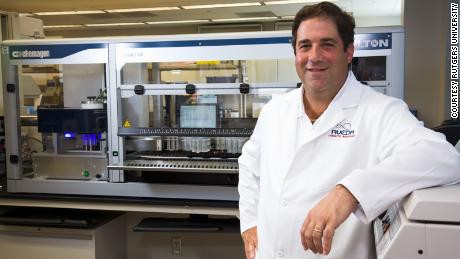
A research professor at Rutgers University, Andrew Brooks, who led the development of the first FDA-approved Covid-19 saliva test, died suddenly on January 23, according to a Monday, February 1 statement by the university.
Brooks, 51, was the chief operating officer and director of technology development at RUCDR Infinite Biologics, the lab that developed the saliva test used for covid-19 diagnosis.
The test, which was approved in April 2020, was authorized for use at-home a month later.
According to Janet Green, who is sister to Brooks, the cause of his death was a heart attack. She called him “an intellect, an amazing scientist, an amazing father … an amazing family man.”
In 2020, Brooks spoke about the impact the saliva test had as an alternative to nasal PCR tests for health care workers.
“It means we no longer have to put health care professionals at risk for infection by performing nasopharyngeal or oropharyngeal collections,” he said at the time.
“We can preserve precious personal protective equipment for use in patient care instead of testing. We can significantly increase the number of people tested each and every day as self-collection of saliva is more quick and scalable than swab collections. All of this combined will have a tremendous impact on testing in New Jersey and across the United States.”
New Jersey Gov. Phil Murphy referred to Brooks as “one of our state’s unsung heroes” in a news conference, saying his work “undoubtedly saved lives.”
“We cannot thank Andy enough for all he did across his career,” Murphy said. “He will be sorely missed by many.”
Brooks is survived by his mother, sister, wife and three daughters, along with a niece and nephew.
May his soul rest in peace.




What a great loss, May Almighty let his soul rest in perfect Peace….
May his gentle soul rest in peace
R.I.P to him